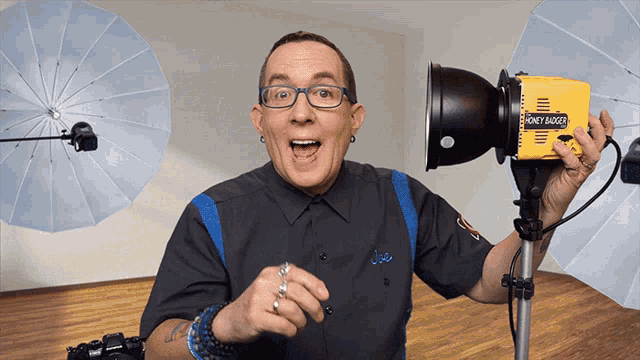Appearing as a guest on relevant podcasts is a great way to speak directly to your target audience for free. And it takes much less effort than guest blogging.
But the hard part is getting booked in the first place. Most hosts are picky about who they’ll have on their show. And with good reason.
It takes years of hard work to build a loyal base of listeners. So podcasters aren’t going to simply let anyone who asks get airtime on the platform they’ve built. Hosts only want to speak to people they feel will be of genuine interest to their audience.
Plus, the more popular a show is, the more guest pitches they’ll receive. So if your pitch doesn’t stand out, it’s going to get buried with all the rest. But what exactly is it that separates a truly excellent pitch from an average one?
We spoke to 4 podcasting experts from the MatchMaker.fm community to find out. In this post you’ll learn about the kinds of things experienced hosts are looking for as they review guest pitches. From doing your research to carefully curating your social media presence, there are plenty of steps you can take to significantly increase your chances of getting booked on the most popular podcasts in your niche.
TLDR: We've summarised the key takeaway points from this article in bullet point format at the bottom of the post (but we think it's well worth the read).

The #1 Podcast Community
With more than 70,000 members, MatchMaker.fm is the largest online community connecting podcasters & guests.
Join MatchMaker todayThe Key Elements of Compelling (& Concise) Guest Pitches
Jason Campbell hosts Superhumans at Work, one of the world's leading professional development podcasts. Produced by Mindvalley, the show publishes conversations with guests who can teach listeners how to be their best selves at work.

Past guests include podcasting veteran Jordan Harbinger, New York Times bestselling author and computer scientist Cal Newport, serial entrepreneur and AppSumo founder Noah Kagan, and many more.
When we spoke to Jason, he told us about one of the best pitches he’s ever received and explained why it stood out to him:
"Before managing my own podcast, I was also managing guests who were requesting to interview Vishen Lakhiani, Founder of Mindvalley. One individual, Mark Metry, wrote in and had all the right elements I was looking for.
His first line acknowledged his admiration for the topics Vishen speaks about. Then he listed individuals he had interviewed already that I could recognise from my ecosystem (i.e. he did his research). One line explained what his personal journey and "why" was, followed by publications I recognised that attributed value (featured in Forbes, etc).
All in all, it was a very short pitch. He even gave the flexibility to do a 5 minute to 55 minute interview, lowering how much time had to be invested to make it happen. I'll always remember his email because his outreach was cold, and the result was that he nailed it!"
The pitch was short, snappy, and well thought out. It gave Jason everything he needed to quickly decide Mark was someone worth following up with. Remember, podcasters don’t want your life story. All they need is enough information to decide whether you’re a good fit for their show. And not a sentence more.
Jason's “Big, Pro, & Cool” Metrics
Today, Jason has a dedicated team that helps him screen guest pitches for Superhumans at Work. To make the initial review process more efficient he developed his own unique guest selection criteria called the “BPC metrics”, which stand for Big, Pro, & Cool. He outlined how he and his team use these indicators to decide who appears as a guest on the show.
“When I say Big, basically I want to know how much traffic will it generate if the guest decides to promote the show. I look for followers on Instagram & LinkedIn as baseline metrics. This metric is important because if a potential guest has been consistent with their message and it resonates with an audience, the results should be easily visible.
I also look at how Pro they are. Are they subject matter experts of their content? I can often quickly filter this based on if they have a book. As an author myself, I know the amount of work that goes into putting your ideas in a book. This shows that you have put your ideas together in a structured way and you did your research.
And finally, Cool. This one is a little less formal, but I want to bring someone who has charisma, speaks eloquently. I'll look for clips on YouTube about them. I'll see what their style is from past interviews."
Don’t be disheartened if you don’t meet all three criteria. There’s always room for improvement in each area. And while you may not be in a position to get booked on a podcast like Superhumans at Work just yet, it’s something you can work towards now you know what top-tier shows are looking for in guests.
When you’re just starting out, we’d advise pitching to smaller podcasts first and working your way up from there. As long as they’re still relevant to your area of expertise, there's still plenty of value in making an appearance. And as you do, think of simple steps you can take to enhance your “Big, Pro, & Cool” metrics.

Keep marketing yourself and building your social media followings. If you’re not yet in a position to write a book, create a blog and start publishing shorter-form posts regularly. These can be grouped together and organised to form the basis of a book later down the line. And lastly, seek out every opportunity you can to practice your public speaking and communication skills.
Adding Specificity to Your Pitch
Brendan Herjavec hosts Building Blocks. In each episode, he sits down with a successful entrepreneur to uncover how they got started and the foundational principles they followed to transform their idea into a flourishing reality. So far, the show has already explored several emerging trends including NFT’s, biohacking, plant-based foods and more.

For Brendan, one of the key elements he looks for in a guest pitch is specificity. He likes to know exactly what each guest can bring to the table during the interview.
"My podcast is based on conversation, therefore a pitch with an interesting topic and an individual with a deep knowledge of their topic is essential. Without that, I have no real sense of how the recording will go.
For example, if a pitch merely states “I am successful” there’s not much follow-up conversation I can envision having there. Whereas a pitch that states, “I created a new AI that does X” it instantly creates an opportunity to talk about topics within the industry as well as the science behind the product itself.”
When crafting pitches, it’s a good idea to include a short bullet point list of topics you could discuss on the show. Think carefully about the kind of audience likely to be listening, and try to figure out how your own experience and expertise could add genuine value to them. Showing that you’ve thought through your interview in advance will hold you in good stead with most hosts.
Your Social Profiles Are “Shop Windows”
Following on from the point about specificity, Brendan also raised the topic of social media. He said one of the most common reasons he rejects pitches is due to poorly curated (or non-existent) social media profiles.
“The number of followers a person has doesn’t matter much to me. But a social media presence is a non-negotiable requirement. It needs to be clear they’re active and engaged online. Before saying yes to a pitch, I’ll usually do a bit of digging on social media to uncover more information about the guest and their business. If I can’t find any trace of them on the major platforms, that’s a big red flag. Or if their feed looks disorganised and inconsistent, I won’t follow up.”
Even with the best pitch in the world, you’ll still struggle to land bookings if you treat social media as an afterthought. Don’t get too hung up on your follower counts initially. Instead, focus on creating a good first impression that feels consistent across platforms and is aligned with your personal brand.
Think of your social media profiles as your podcast guest “shop windows”. Because they’re the first places hosts will go to learn more about you. For inspiration, check out the examples below to see what well-curated and consistent personal brand social feeds look like:
How to Research a Podcast Before Pitching
Joe Edelman is an award-winning photographer and photo educator with more than 40 years of professional experience. Alongside hosting his own show called The TOGCHAT Photography Podcast, Joe regularly appears as a guest on other podcasts with the aim of helping listeners understand the how’s and why’s of creating great photographers.

Joe’s approach to pitching aligns closely with the advice Brendan gave above. He goes out of his way to paint a very clear picture of what the interview would sound like and why it’d be of interest to the show’s audience.
"Firstly, I check the show's social influence to see if there is value in being introduced to their audience. Next, I double check they’ve interviewed people like me in the past. I then listen to a few episodes to make sure I understand their style and content mix. Armed with that information, I’ll then develop a suggestion - the pitch.
I send only one idea. But I provide a lot of detail in terms of how I feel it might be interesting to their audience and provide benefits. I offer a list of potential questions that fit within that theme. And lastly, I also offer to do a quick phone or Zoom call just to meet and discuss the potential interview in more detail. I close each pitch with links to my website, socials and media kit so the host can easily find out more about me."
Following Joe’s process does take some time, because it requires that you do your research thoroughly. But doing so significantly increases your chances of success.
By this point, it should be clear that generic cut-and-paste pitch templates are never going to deliver the results you’re looking for. Yes, they save time in the short term. You can send out 50+ pitches a day. But what’s the point if the vast majority get rejected immediately?
Alongside making the effort to create truly tailored pitches, the offer of a phone or Zoom call to talk through your idea in more detail is good practice to adopt. Not every host will want to do this, but giving the option creates a prime opportunity to convince those that are on the fence about whether to have you on.

As Joe explains, it’s important to remain humble and give your pitches the time and attention they deserve if you’re serious about making podcast guesting a viable strategy for you and your business:
"I think the most important thing is to not sound entitled or like you are so good that the show should automatically care about you… At the end of the day it's business and the host wants to know what's in it for them. So your entire pitch should be crafted with that in mind."
Using the “Value Sandwich” Pitching Model
Nate Dukes is a coach, speaker, and author. He recently published You’ll Never Change, which sets out to help readers make a comeback in life by making the right choices one day at a time. The book stems from Nate’s own experiences battling drug addiction and spending time in jail, before fundamentally altering his mindset, friend circle, and belief system for the better.

Since launching the book, Nate has been on an intensive podcast tour - recording multiple guest interviews every week. In that time, he’s refined an efficient and effective pitching process which he calls the “value sandwich”. Here’s how it works:
"First I'll find 10 shows in my category (self-improvement) and one by one I'll go and listen to at least two episodes so that I get a feel for their show and if I would be a good fit. Second (this part is critical), after listening, I'll rate the podcast and leave a review so I'm adding value right away.
After completing the initial two steps, I'll then open my pitch by referencing the episodes I listened to as well as informing the host that I left an honest review on Apple Podcasts. It’s only at this point that I‘ll start to talk about myself. I give information about who I am, the points I’d like to discuss on the show, and how I’d love to share their podcast with my email list and social media followers. I call it the value sandwich. Add value, make an ask, add more value."
Including a rating and review within the pitching process is definitely a nice touch, and the approach is clearly working for Nate. But as with Joe, his success is mostly due to his careful podcast selection and research phases. There are no shortcuts or hacks there.
How to Make a Lasting Impression as a Guest
Nate went on to explain that his work doesn’t end there. After getting the all important “yes” from a host, he then shifts his focus to preparing for the interview itself.
"I view each interview as a chance to prove to the host that they made the right choice. I always make sure I’m fully prepared to speak at length on the topics I mentioned in my pitch. Basically, I try to put the same level of intentionality into the interview as the podcaster does themselves.
Doing so not only helps me record better content, but it’s also helped me secure additional interviews through word of mouth. A recommendation from another podcaster is far more powerful than any pitch you send yourself. It’s solid social proof that you’re the real deal."
Unless you’ve been interviewed hundreds of times before, you can’t just “wing it”. If you go in unprepared, you’re probably going to end up fumbling over words or give boring generic responses. As Nate points out, you have one chance to impress the audience and make them remember your name. So don’t take it for granted. For more on how to make a lasting impression as a guest, check out our guide below:
TLDR: Key Takeaway Points for Guest Pitching
There is a lot you can learn from the advice above. But because everyone's background and experience is different, you’ll need to develop your own unique style of pitching. Experiment and try things out until you settle on an approach that seems to work best for you. That being said, here are some helpful guidelines and tips that’ll help maximize your chances of success:
Writing Your Pitch
- Never use generic cut-and-paste templates. Tailor every pitch you send.
- Listen to at least 2 episodes and research the show & host before pitching.
- Keep your pitch as concise as possible. Only include essential information.
- Suggest a specific topic you could talk about on the show. Paint a clear picture of what the episode would sound like.
- Offer to do a quick phone / Zoom call to discuss your suggested idea in more detail.
- Consider leaving a rating and review on Apple Podcasts and mentioning it in your pitch to add value to the host up front.
- Include links to your website and socials so the host can easily find out more about you.
- If you’ve been featured in any established publications, include links (Forbes, Fast Company, Entrepreneur, Inc. Magazine etc)
- Let the host know how you’ll help promote the episode upon release.
- Proof read your pitch before hitting send to catch and correct any typos.
Enhancing Your Personal Brand
- Start by pitching to smaller podcasts first and work your way up from there.
- Work to grow your social followings & with regular posts that look consistent and on-brand.
- If you haven’t published a book, consider starting to blog on Medium to demonstrate authority in your area of expertise.
- Actively seek out opportunities to practice your public speaking and communication skills.
- Take time to prepare before each interview to increase your chances of making a lasting impression on the host and listeners.

The #1 Podcast Community
With more than 70,000 members, MatchMaker.fm is the largest online community connecting podcasters & guests.
Join MatchMaker today





